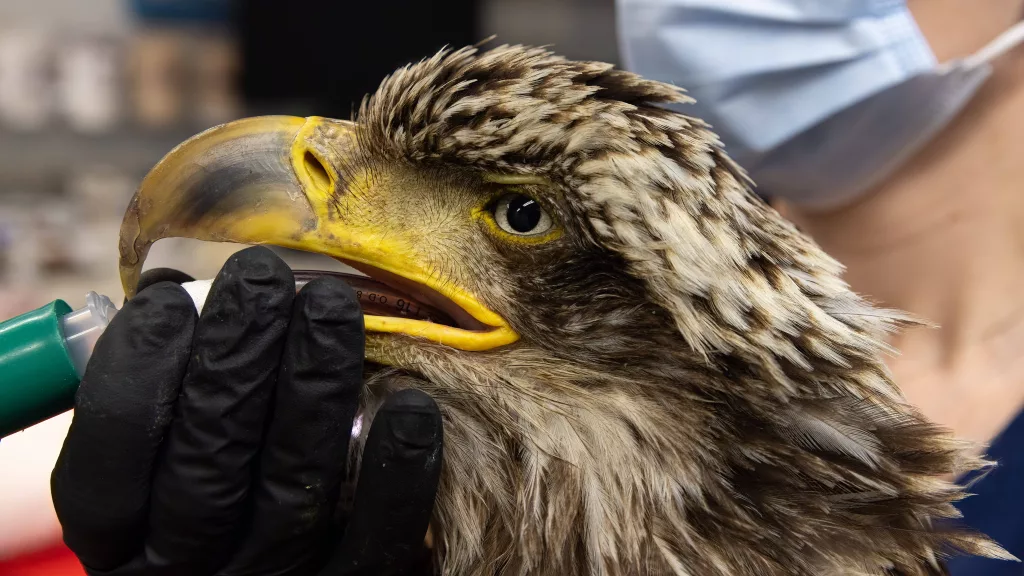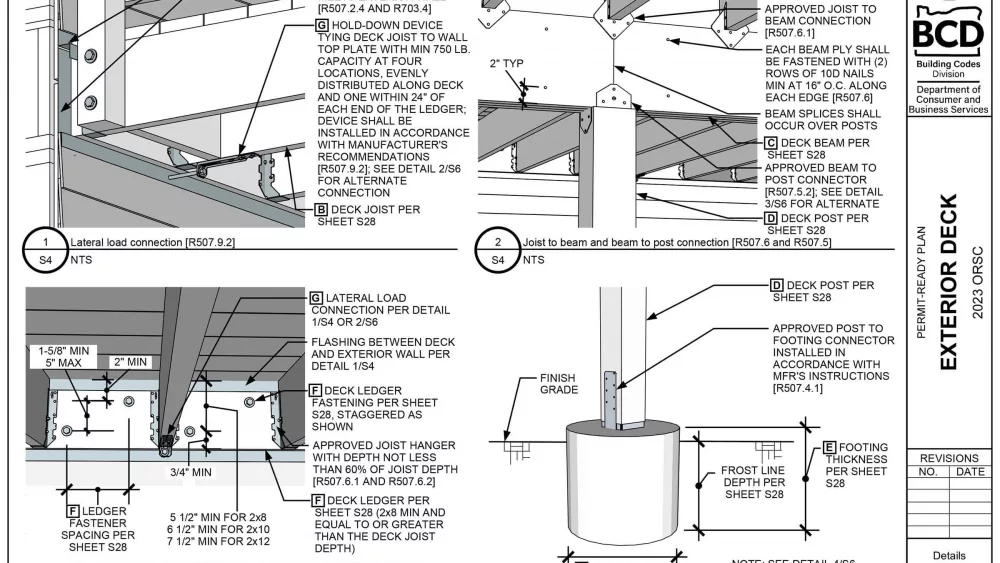Think Wild, Bend’s wildlife hospital, is optimistic about the recovery of a young injured female bald eagle following life-saving orthopedic surgery.
A Powell Butte resident found the eagle lethargic and unable to fly in a field on March 16. They captured and kept the eagle warm and safe overnight, then an Oregon State Police officer transported the bird to Think Wild in Bend. Wildlife hospital staff diagnosed the 2-3 year old female bald eagle with multiple traumatic injuries, including left femur and coracoid fractures.
Upon intake, the eagle was quiet but alert, showing signs of trauma including a fractured beak tip, wing bruising, and mobility issues in the left leg. Radiographs confirmed a left femoral fracture, requiring surgical intervention. Think Wild’s rehabilitation team stabilized the eagle with pain management and anti-inflammatory medication before proceeding with the operation.
Think Wild’s veterinary team undertook the complex surgical procedure on March 20 to repair the eagle’s femur and facilitate recovery. During the surgery, the team carefully aligned the fractured femur using a combination of an intramedullary pin with an extra skeletal fixator, a common orthopedic stabilization technique for birds. The surgery was extensive, requiring care to deal with bruised and damaged tissue, and securing bone segments to ensure proper healing. The eagle was monitored closely throughout the anesthetic procedure and post-operatively to ensure a smooth recovery. The coracoid bone did not require surgical intervention and is being treated with rest and activity restriction.
Think Wild’s medical team continues to provide supportive care, including pain management, antibiotics, physical therapy, and scheduled recheck radiographs every two weeks to monitor the healing process. “The bird’s primary concerns are stabilizing the two fractured bones while simultaneously trying to treat her and make sure that she gets her medications – all without making her current condition worse. It’s a delicate task for our team that we are managing carefully,” says Dr. Laura Acevedo, Think Wild’s veterinarian.
While the bald eagle’s recovery will take time, her prognosis is guardedly optimistic. Post-surgery, she is alert but her appetite is below normal, likely due to the stress of surgery and temporary captivity. The bald eagle patient is expected to regain full flight capability should the leg heal normally, and will be released back to the wild if she makes a full recovery.
Bald eagles are large raptors native to North America. They typically nest in forested areas near bodies of water, eating primarily fish. Previously declining populations of bald eagles have recovered in the past several decades, with an estimated 4% population growth each year between 1966 and 2019. Bald eagles are protected in the United States by the Migratory Bird Treaty Act and the Bald and Golden Eagle Act. Eagles also hold cultural significance for indigenous peoples of North America.






